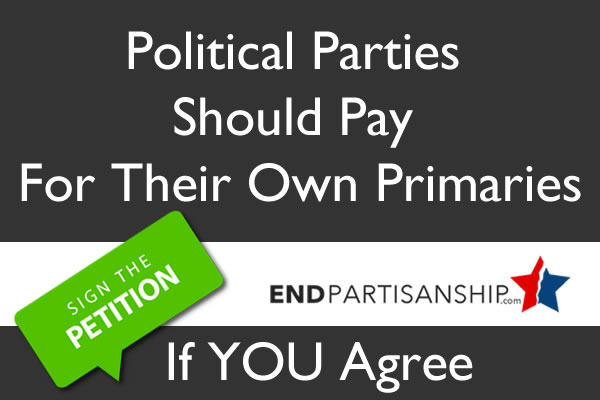Approval Voting and The Effect on Partisanship with Mark Frohnmayer

Mark Frohnmayer, a scion of Oregon politics and a self-described “serial entrepreneur,” has picked up the torch to take the primary system to the next evolutionary step. The recent government shutdown in the face of widespread national disapproval brought him to this state of action.
He said:
“”
The upgraded primary is first being tested in Oregon under the name the Approval Voting Primary Act.
Mark’s last name is well-known in Oregon. His father, David Frohnmayer, is a former state legislator and attorney general. The senior Frohnmayer had an unsuccessful run for governor in 1990, which became a defining moment for Mark.
"We live in a representative democracy, but that representation does not happen a lot of the time," Mark said. "Our elective process elects people who do not represent the wide swath of the electorate. The system that we have in place today is vulnerable to some really extreme gaming approaches.”
Mr. Frohnmayer, in an Oregon ballot initiative co-authored by him and his brother, is proposing a nonpartisan top-two primary, with approval voting. Approval voting allows individual voters to select more than one candidate on the ballot. In Oregon’s case, if the initiative passes, there will be one ballot and at least three candidates listed.
Oregon is currently one of 18 states with a closed primary system. Closed primaries are restrictive as they only allow members of two private organizations to participate in publicly-funded elections. While open primaries allow non-party members to participate, voters are still required to select the ballot of one party, limiting their choices.
Frohnmayer believes the primary system needs to be fixed in a way where the best candidate, regardless of party, can win.
“… As if people are afraid of getting primary’d. Challenged from within their own party by refuting their own elements in order to shift the outcome.”Aside from the positive effect of allowing members of more than one party to vote on the same ballot, the approval voting proposal could increase voter turnout. By creating a more open primary with multiple choices, the electorate will become better informed on each candidate. The candidate that wins will share more of their electorates’ opinions.
Frohmayer believes that in an approval system, "it is much more likely we’ll see a lot of that broad display of viewpoints jump out in the primary.”
“And we would see the more nuanced choice in the general election where the two candidates map more closely to their districts," he added. "Primary candidates are really having the conversation with the entire electorate. You can’t just play to some base and expect to get beyond the first cut.”
The Oregon ballot initiative is currently undergoing a signature drive to officially be placed on the next statewide ballot. The state legislature can also act early during the 2014 session to make it law, but this seems an unlikely outcome.
If national polls are any indication, D.C. politics is not working and some change should be welcomed by the electorate. It is that very dysfunction at the federal level that made Mark Frohnmayer to turn his idea into a public initiative.
Photo Credit: The Oregonian




